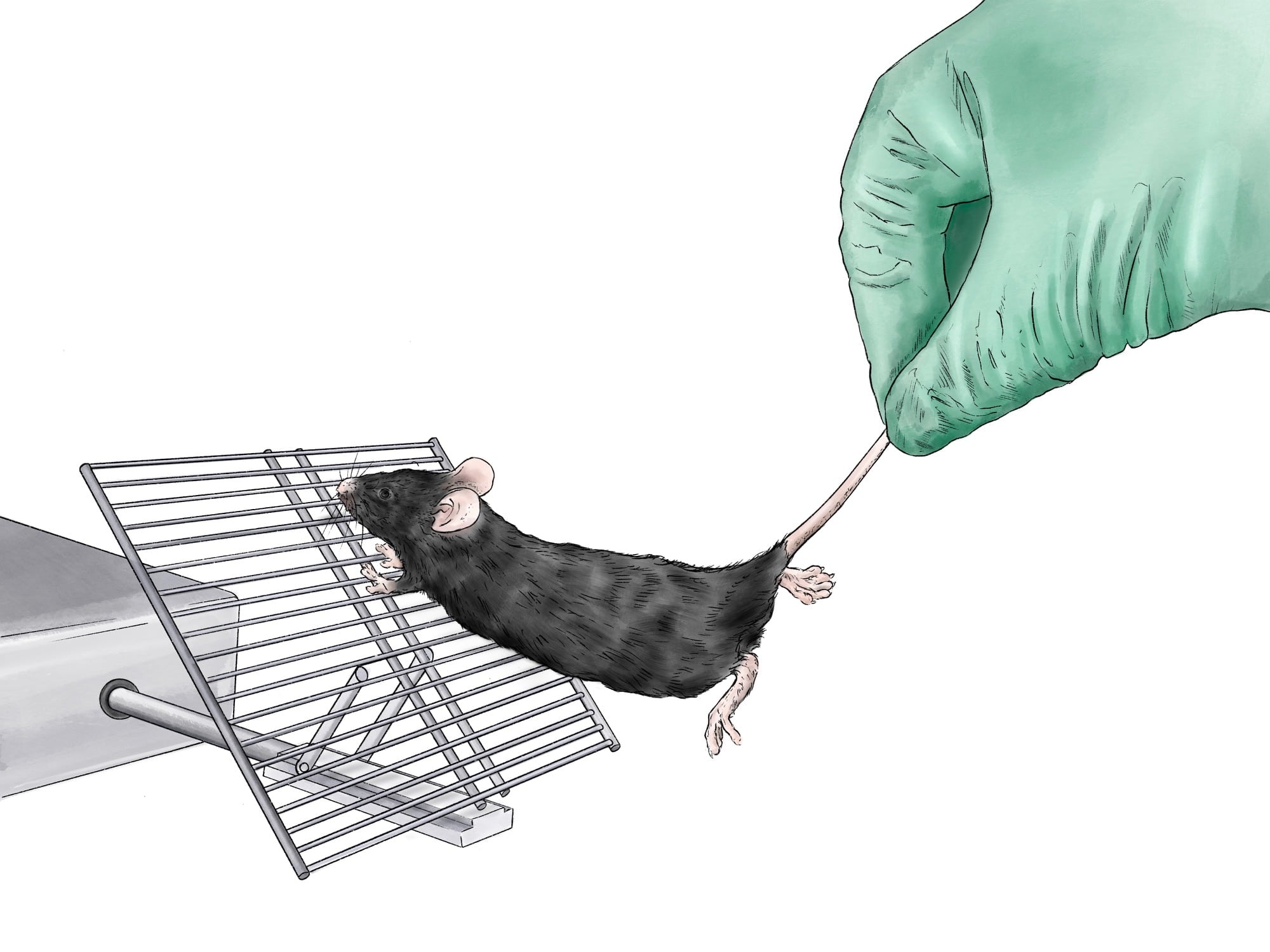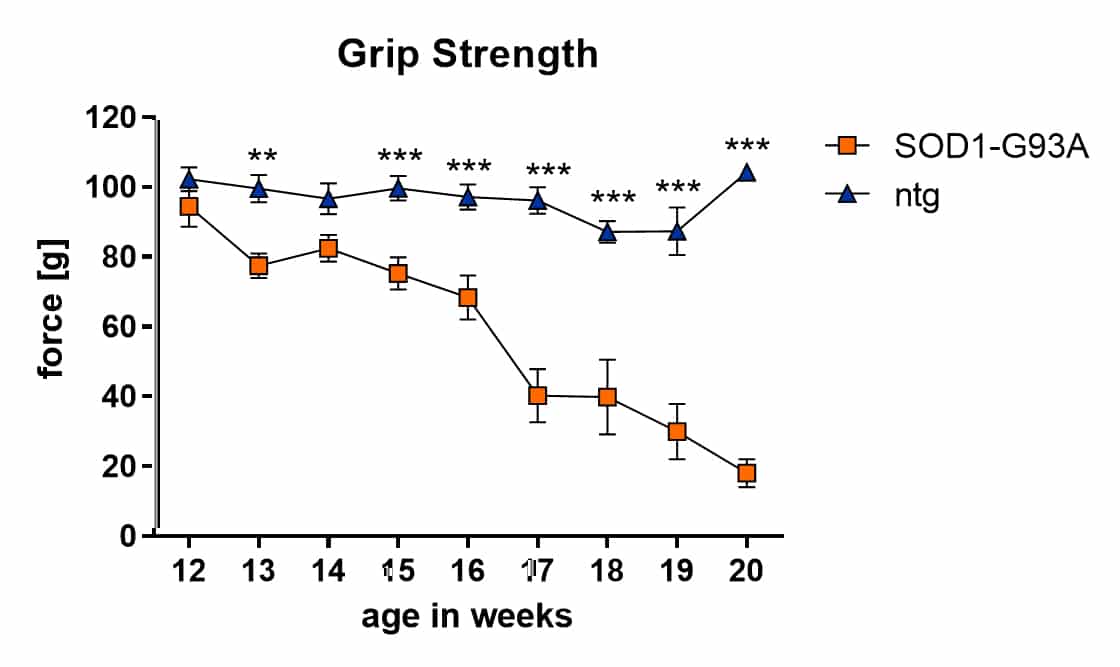
The grip strength test is a simple, non-invasive method utilized for the in vivo evaluation of mouse and rat muscle strength. It is in use for over 30 years for measuring neuromuscular function by determining the maximal peak force developed by the animal. The testing apparatus consists of a bar or grid attached to a force transducer connected to the computer. The force transducer records the maximal force obtained for each trial. Because of its simplicity and straightforward interpretation, the grip strength test is the most commonly used in vivo test to monitor impaired limb strength rendered by pathologic conditions and to determine whether therapeutic interventions can affect the force produced by limb muscles.
Habituation or training is not needed for this test. Animals are placed on the grip strength apparatus in a way that they can grab a small grid with their fore paws, although in rats also measurement of hind paw strength is possible. Then, the experimenter slowly pulls the animal away from the grid until it releases the handle. The maximum strength of the animal’s grip is recorded. Each animal undergoes three trials per testing session. Repeated testing is possible, making a grip strength test a great test for measuring the progression of the disease or long-term effects of an intervention. Although the test is simple, it is important that it is conducted by an experienced experimenter since the angle of pulling, as well as the speed, can affect the results.
This test is widely used in models with neuromuscular phenotypes, such as ALS, Parkinson`s disease, Gaucher disease, Pompe disease, and multiple sclerosis. It is commonly performed in combination with the RotaRod, beam walk test, and wire suspension test. It can also be used as a control test to determine whether the observed result is affected by neuromuscular impairment in assessments where activity can impact the results, e.g., open field, Morris water maze, Barnes maze, and similar.

Figure: Grip strength test of SOD1-G93A mice compared to non-transgenic mice. Shown is the force that animals use to grip the handle in grams. Two-way ANOVA with Bonferroni’s post hoc test. Mean ± SEM; **p<0.01; ***p<0.001.
